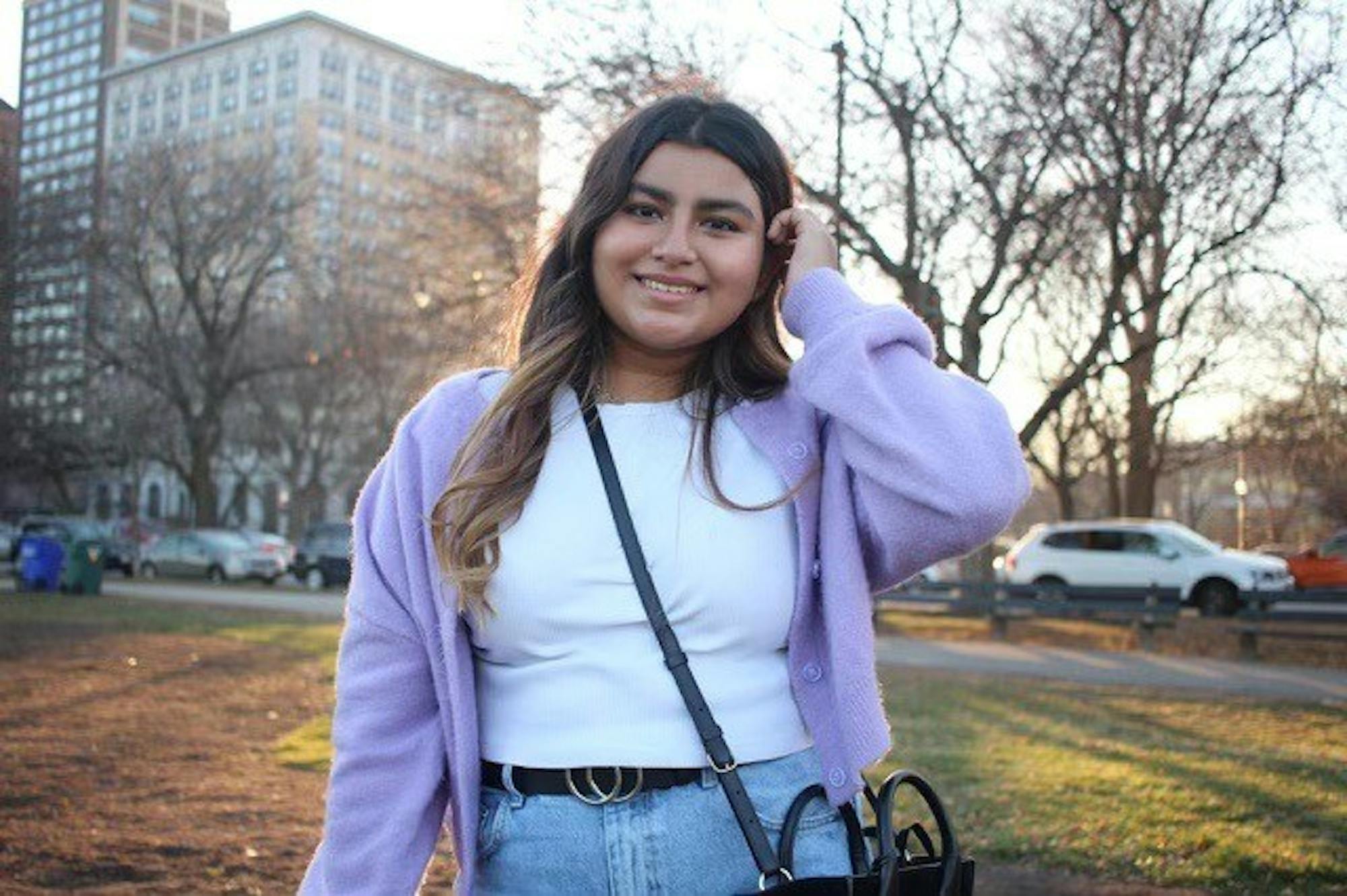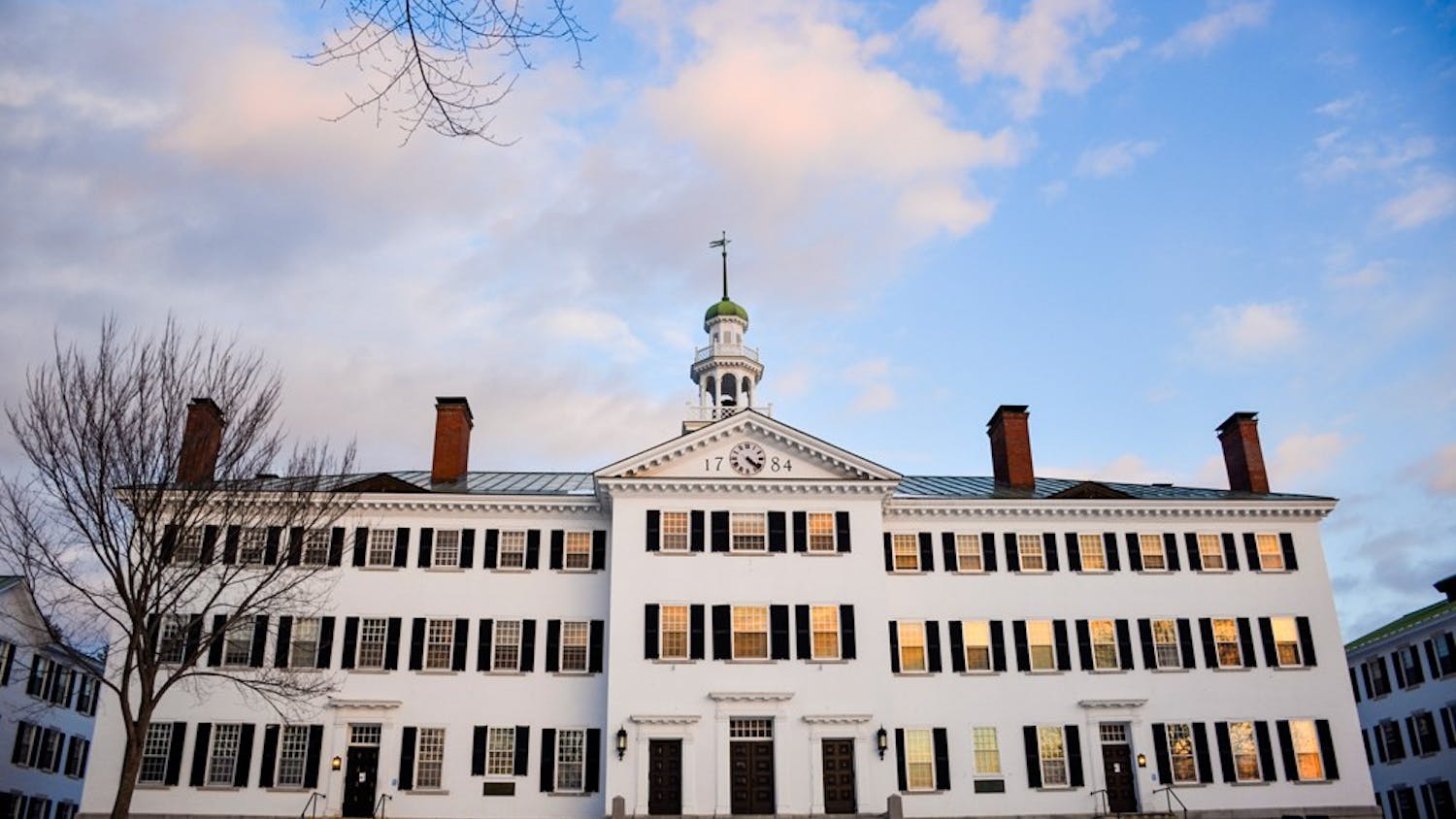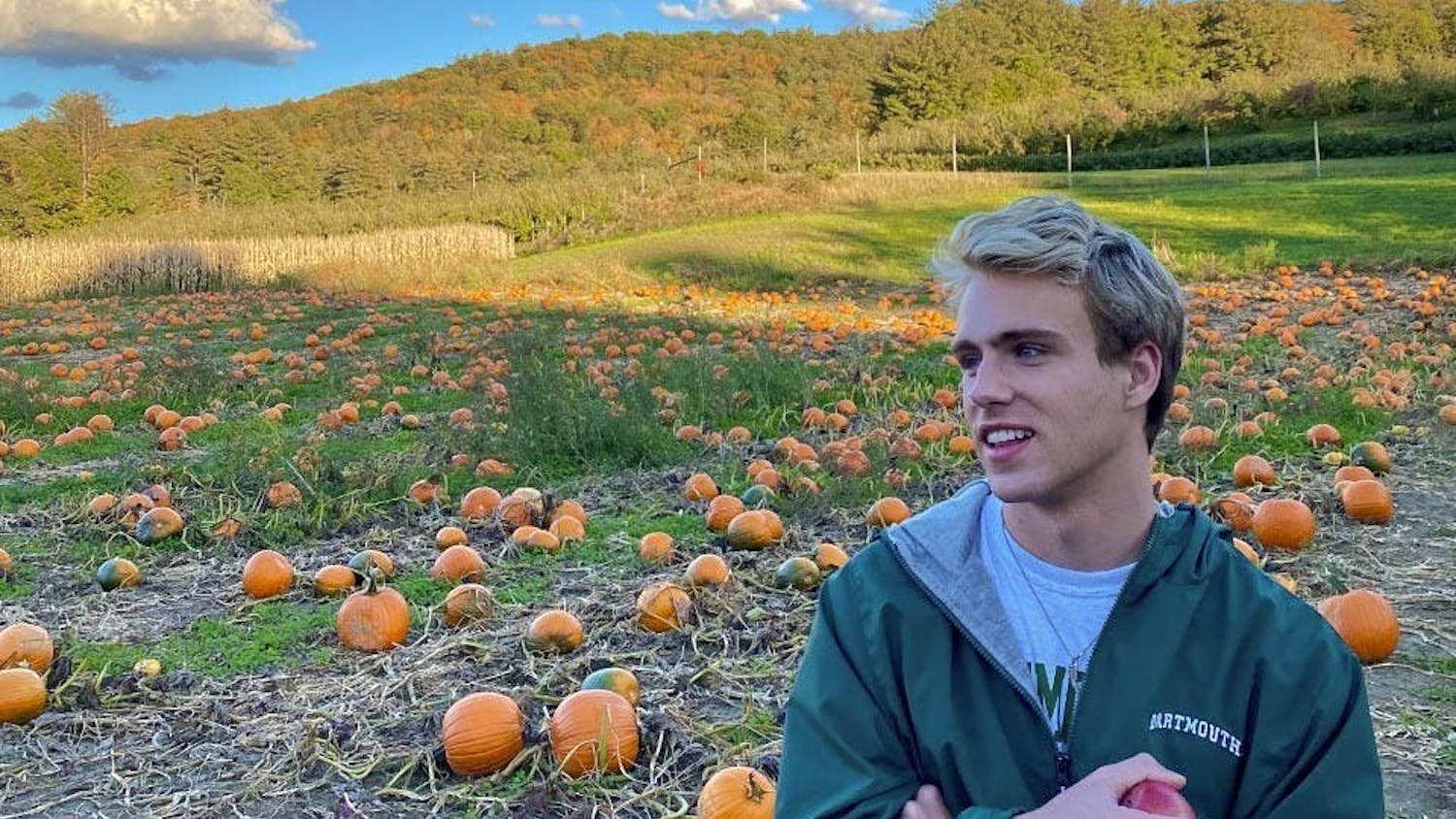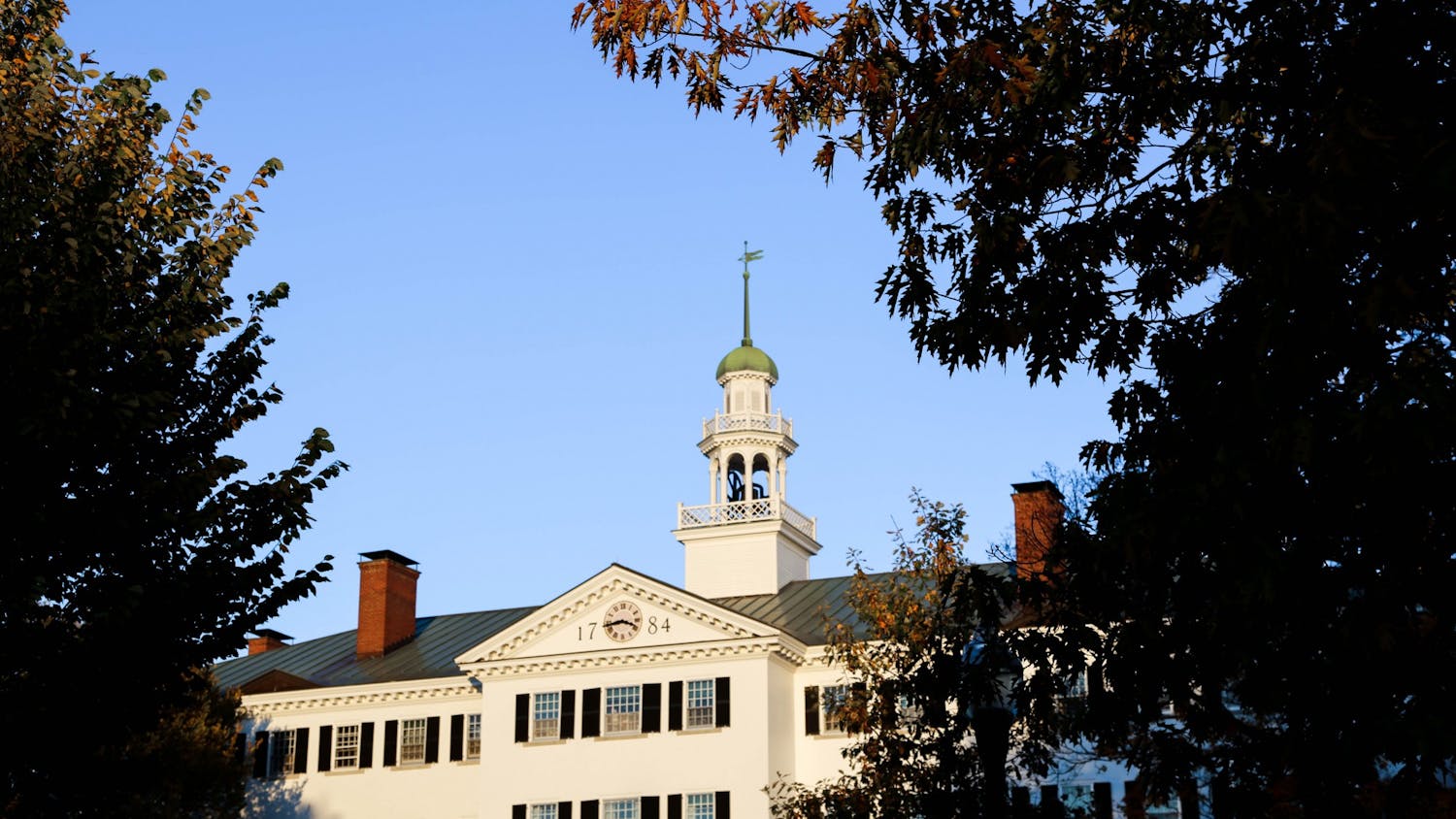As the College’s first undergraduate student from Saudi Arabia, Lamees Kareem ’22 arrived at Dartmouth seeking community. In her three years in Hanover, she ended up building one for herself and those she met along the way.
Kareem’s fervor for learning and desire to give back to her home country led her to excel as a government and economics major. She was a regular presence within the Middle Eastern studies program, a talented artist and a strong, compassionate friend to those who knew her.
“She was one of those students who I thought was going to help change the world,” economics professor Marjorie Rose said.
On April 1, Kareem died of a medical condition unrelated to COVID-19, for which she had been hospitalized for several weeks. She was 20 years old.
Hailing from the coastal city of Jeddah, Saudi Arabia, Kareem is survived by her parents, Majed and Kamilia Kareem; and her brothers, Aseel, Adeeb and Anmar.
Kareem approached her studies with a passion for international relations and development economics. Upon graduation, she dreamed of working at the World Bank, hoping to use her education to assist the economies of Saudi Arabia and other developing nations. This summer, Kareem was set to intern at the United Nations.
Among Kareem’s many involvements on campus, she was a cartoonist for The Dartmouth, a member of Kappa Delta Epsilon sorority, an admissions office blogger, a Great Issues Scholars program mentor and a research intern at the Political Violence Lab. She also instructed drill, served as a tutor for the Arabic language program and helped lead the College’s Arabic Club.

Kareem’s broad interests and strengths as a student developed at an early age. In 2018, Kareem graduated from Jeddah Knowledge International School at the top of her class. She was named her school’s Student of the Year and received certificates of academic excellence in all her high school coursework.
Francesca Wood ’22 met Kareem as freshmen in ECON 1, “The Price System: Analysis, Problems and Policies.” The two would arrive early to class every day and always sat in the front row, Wood recalled.
Wood and Kareem quickly became friends outside of class, bonding over their international backgrounds.
“Even though she had such a different upbringing than mine, we were still able to understand where we both came from,” Wood said. “... Something I really appreciated about Lamees was how intelligent she was and how that intelligence went further than just being academic, but also more socially and culturally aware.”
At Dartmouth, Kareem found a home in the College’s Middle Eastern studies program.
MES professor El Mostafa Ouajjani noted that Kareem could be found at nearly every event hosted by the program, often engaging in discussions and conversing with guest speakers. She would cook traditional Saudi dishes for students living in the Global Village’s Arabic Language Program floor and frequented the MES program’s Moroccan tea hours. Her patience and warmth, Ouajjani recalled, made her one of the Arabic language program’s most popular drill instructors.
“She was a friend to everyone in the Arabic program,” Ouajjani said. “She was such a jovial person, always wanting to spread happiness to other people.”
Nithya Kasarla ’22 first encountered Kareem when she began taking Arabic classes her freshman fall. Kasarla noticed a piece of jewelry Kareem was wearing — a necklace that said “Lamees” in Arabic — and tested out her Arabic skills to read it.
“She was so proud of me for using my very basic Arabic to read her necklace,” Kasarla recalled. A few years later, during the fall of 2020, Kasarla and Kareem became close friends after Kareem went up to greet her on the Green. Kasarla described Kareem as “the sweetest person” and “a joy to be around.”
“Her laugh — I can still hear it,” she said. “She laughed so often. She always brought such a great sense of humor, such a positive light to every conversation.”
Despite only having met Kareem virtually last spring as a student in her course ARTH 63.01, “Mexican Muralism,” art history professor Mary Coffey observed that Kareem “had a kind of illumination that came through the screen.”

Friends of Kareem expressed admiration for her sweet disposition and comforting presence. Kasarla recalled times when she would be having a bad day, and Kareem would come to cheer her up.
“She would just be there and sit with me. We would say nothing in silence, but she’d be there,” Kasarla said. “Her presence was always the best thing to be with when you weren’t feeling at your best.”
Maddie Donovan ’21, who knew Kareem as a fellow member of KDE, described her as an “absolute ray of sunshine,” and Katie Danahy ’21, who knew Kareem through KDE as well, noted her “grace and maturity far beyond her age.”
A lover of the arts, Kareem also played the piano and saxophone “incredibly well,” Wood noted.
Though the arts were not Kareem’s main area of study, Coffey noted that she excelled in her art history course, contributing a unique perspective particularly on the concepts of gender and Middle Eastern art and culture. One topic that Kareem raised in class — murals on the border wall between Israel and Palestine — even became the inspiration for a final project put together by a group of ARTH 63.01 students.
“She was very insightful — one of those students who sees to the heart of an issue right away,” Coffey said. “... The truth is that in my mind, I thought of her as kind of an art student because of how much she cared about art.”
Fiercely proud of her home country, Kareem also strove to dispel misconceptions about Middle Eastern culture during her time at Dartmouth.
“Lamees was very against the fact that people thought there were certain stereotypes about Saudi Arabia — that she was somehow restricted and wasn’t able to live up to her full potential because she was from there,” Kasarla said. “She was very proud of [Saudi Arabia] … and very vocal about trying to get rid of those stereotypes.”
As her professors observed, Kareem brought intense passion to her vast array of pursuits at the College.
“What she loved about Dartmouth is that there were so many opportunities to try new things and get to know students from different backgrounds,” said Rose, who taught Kareem as a student in ECON 70, “Immersion Experience in Applied Economics and Policy” in the fall of 2019. As part of the course, Kareem and a cohort of other students traveled to Argentina for two weeks to conduct field research and deliver a report on labor markets in the country.
Rose recalled Kareem as a “vivacious” and “positive” presence on the trip, as well as a “completely lovely person” who forged close bonds with upperclassmen as one of the youngest students selected for the course.
Beginning this fall, Rose and economics professor Doug Irwin, who co-teach ECON 70, plan to create the Lamees Kareem Award for the ECON 70 student who best embodies Kareem’s spirit of collaboration.
“There are so many things that Lamees added to everyone’s life,” Kasarla noted. “Not just her sense of humor, but also the strength she had. … Whatever Lamees was going through … she was always able to be kind and funny and positive.”
A burial service was held for Kareem in Jeddah early last week. On Sunday, the Middle Eastern studies department hosted a virtual memorial service where friends, family, professors and other members of the Dartmouth community, as well as Hamed Sinno of Mashrou’ Leila — one of Kareem’s favorite singers — paid tribute to her.
Counseling services for students are available through the College’s Health Services, which can be reached at (603) 646-9442 from 8 a.m. to 4 p.m. and at (603) 646-9440 outside of regular business hours. The Student Wellness Center and Undergraduate Deans Office may also be reached for undergraduate support, and students can contact the College’s chaplain to set up a confidential pastoral counseling session.
Kareem’s work for The Dartmouth can be viewed here.
Elizabeth Janowski '21 is the news executive editor of the 177th directorate. Hailing from Brookfield, Wisconsin, she is pursuing a double major in history and film and media studies.




